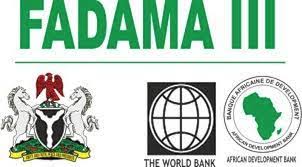Moody’s Investors Service (‘Moody’s’) has downgraded Federal Government of Nigeria’s long-term foreign-currency and local-currency issuer ratings and its foreign currency senior unsecured debt ratings to Caa1, from B3 and changed the outlook to stable.
Last October, the world’s leading ratings firm downgraded Nigeria’s local and foreign currency long-term issuer ratings as well as its foreign currency senior unsecured debt ratings to B3 from B2 and placed them on review for downgrade. The latest ratings concluded the review that started on 21 October 2022.
Moody’s also downgraded Nigeria’s foreign currency senior unsecured MTN programme rating to (P) Caa1 from (P) B3.
The review reflected that Moody’s expectation that the government’s fiscal and debt position will continue to deteriorate was the main driver behind the rating downgrade.
According to the ratings firm, Nigeria faces wide-ranging fiscal pressure even as the government’s capacity to respond remains constrained by its long-standing institutional weaknesses and social challenges.
The review further clarified: “Ultimately, the risk that a negative feedback loop sets in over the next couple of years between higher government borrowing needs and rising interest rates has intensified, exacerbating the policy trade-off between servicing debt and financing other key spending items.
“The 2023 budget plans on an even larger fiscal deficit than in 2022, while the government’s funding options remain narrow and reliant on central bank financing. In addition, the government’s lack of access to external funding sources will add to the external pressure from depressed oil production and capital outflows, thereby eroding further Nigeria’s external profile over time.
“At this stage, immediate default risk is low, assuming no sudden, unexpected events such as another shock or shift in policy direction that would raise the default risk,” it added.
The review projected that while a new administration could reinvigorate the reform impetus in Nigeria after the general elections planned for 25 February, 2023, and thereby support fiscal consolidation, implementation will likely remain lengthy amid marked social and institutional constraints.
Similarly, the ratings firm also lowered Nigeria’s local currency (LC) and foreign currency (FC) country ceilings to B2 and Caa1 respectively, from B1 and B3 respectively.
Mainly, it linked its review for downgrade of the LC and the FC on Nigeria’s fiscal and external position and the capacity of the government to address the ongoing deterioration – other than by alleviating the burden of its debt through any form of default, including debt exchanges or buy-backs.
According to the review, fiscal pressure from falling oil production, the increasingly costly oil subsidy as well as rising interest rates will likely persist over the next couple of years, while a policy response post-election is likely to take some time to put Nigeria’s fiscal position on a more sustainable path.




